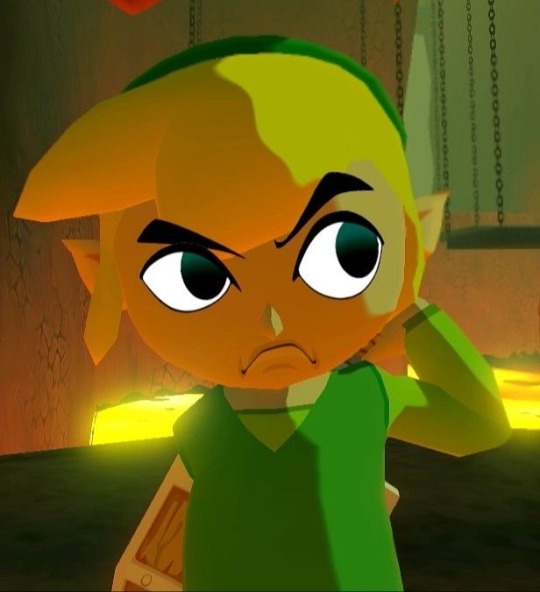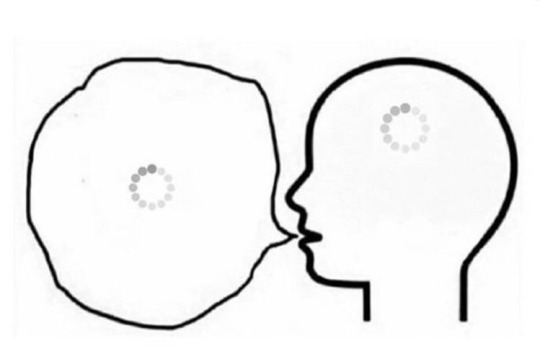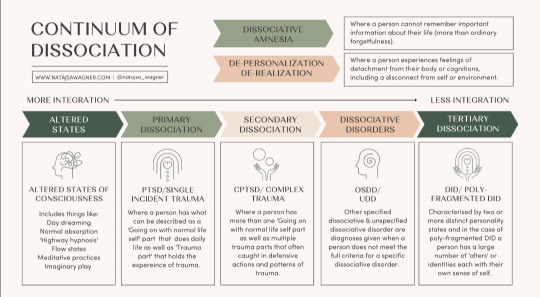#pdid
Text
Plural Culture is "do I feel young because I as an alter am older than the body? Or because I as an alter am younger than the body?? Or am I just regressed?? Or having an off day??"
#endos dni#osdd#pdid#did#did system#pdid system#osddid#actually did#traumagenic#actually dissociative#plural culture is
92 notes
·
View notes
Text


I love how botw / totk and wind waker both use cell shading, it's so cool and it shows how versatile it can be. Wind waker is more cartoony with less details and bigger areas of a single color for the shading, but in botw / totk it's a lot more detailed. You can really see it in link's hair (left), it's just so interesting to me i love it sm :3
I also love how in ww they put Link's facial features over his hair, ww link is the most expressive one we've gotten so far and it really makes it more noticeable and charming
I love loz :3
-🕸
#endos dni#anti endo#did osdd#osddid#dissociative identity disorder#pdid#pdid system#dissociative system#system stuff#traumagenic system#the legend of zelda#legend of zelda#zelda#princess zelda#link#botw#totk#tears of the kingdom#breath of the wild#video games#nintendo#cell shaded#cell shading#art study#art inspo#art inspiration#digital art#3d art#wii u#gamecube
25 notes
·
View notes
Text
this term was created by an anti endo, and would prefer that NON-traumagenic systems and their supporters do not interact or use this term.
SIBTECTOR / SIBSHIELD
[pt. sibtector / sibshield. end pt]

an alter whose role is to protect or take care of the body's younger family, such as siblings or cousins!
term and flag both coined by me
#osdd#osddid#did system#did osdd#did#actually did#osdd system#system#pdid system#pdid#did flag#system flag#system term#system terms#dni endos#endos not for you#endos do not interact#endos fuck off#anti endo#endos dni
24 notes
·
View notes
Text
When you’re mid sentence and suddenly forget literally everything you were talking about

#for us it shows up as the AOL dial up noise#our therapist said its just a diff form of dissociation but damn blue screen moments#littlest_bugz og#did osdd#dissociative identity disorder#did#did system#cdid#cdid system#polyfrag did#pdid#osdd#osddid#system stuff#system memes#did memes#osdd memes
1K notes
·
View notes
Text
“It’s okay to not be okay”
Unless it impacts your work performance…
Or your grades
Or how you act
Or if it causes you to say no
Or if you’re harder to be around
Or if you need time alone
Or if you talk about it
Or show symptoms
“It’s okay to not be okay”
Unless you have trauma
Unless you have one of those “scary” mental illnesses
Unless it inconveniences me
Unless you’re undiagnosed
Unless you cry or scream or make a scene
Unless you don’t keep that shit to yourself
Unless you make me uncomfortable
Unless I can’t infantilize or fetishize you
Unless you have hallucinations
Unless you have psychosis
Unless you get angry
Unless I think you’re cringe
Unless you can’t preform hygiene tasks
Unless you’re disabled, or trans, or gay, or not white, or fat, or AFAB, or intersex, or a man… so I guess anyone
“It’s okay to not be okay”
As long as nobody ever finds out.
Our society has a severe issue with performative activism, and mental health is a huge example of this. Every time someone considers reaching out, they run through this list mentally. This is why true activists and resources need to be loudly supportive of all the things on this list. Take the subtext out of your support.
#repitition#tw repition#second person pov#second person tw#tw cursing#cw cursing#cursing#avpd#avoidant personality disorder#personality disorder#actually avpd#pd#pdid#did#mental illness#mental health advocate#ptsd#cluster c personality disorder#mental illness advocacy
1K notes
·
View notes
Text

#did memes#dissociative disorder#did community#endo safe#traumagenic#pdid#actually traumagenic#multiplicity#dissociation
1K notes
·
View notes
Text
y'all know when someone keeps talking about their "quirky" childhood and adult habits but it's just like. textbook examples of a complex dissociative disorder. but you can't just be like "maybe you're a system" bc that could freak them out way too much all at once.
or you'll offhandedly mention a Uniquely System Specific Experience and they go "wait i relate to that lol. it must be from my depression/anxiety/etc" like. uhmmmm. not quite, not quite. time loss and seeing people in your head that grow and change independently of you is not uh,,,,,,,,,i don't think that's anxiety uh,,,,,,,,
#i explained psychosis once as a 'break from reality' once and they misunderstood and went 'oh i've had that !!'#and then proceeded to describe the picture perfect example of a DID blackout#like that's not what i meant by a break😭#you might wanna consider the other possibility#did#osdd#pdid#dissociative identity disorder#otherwise specified dissociative disorder#partial did#partial dissociative identity disorder#did osdd#osddid#did system#osdd system#pdid system#cdd
576 notes
·
View notes
Text
When you split super easily so one minor inconvenience causes three new pests in your brain
#anti endo#did alter#did system#endos dni#osdd system#traumagenic#traumagenic system#dissociative system#osdd alter#pdid#syskid#sys#system things#plural system#system#system culture is#sysblr#did osdd#actually did#did community#hc did#cdid#cdid system#hc did system#osddid#osdd community#actually osdd#osdd#actually pdid#pdid system
571 notes
·
View notes
Text

[Text: This system is primarily male/male aligned.]
Like/Reblog if you save or use!
#userbox#this system#system#system stuff#traumagenic system#did system#did osdd#osddid#pdid#dissociative identity disorder#did#osdd#p did#c did#anti endo#endos dni#mod bugz 🐛#system userbox#undescribed
567 notes
·
View notes
Text
age
age is a very complicated matter within systems, but i feel like on important thing to say is that BODY AGE COMES FIRST. i do not care if you're both the same age alter-wise, if your body ages are illegally different (adult and minor, ect) then you should not be dating. yes alter age can sometimes affect the maturity of alters but it differs from system to system and body age should always come first before you start to bring up alter age / consider it
#actually did#did#did system#pdid#osdd#did osdd#system#alters#alter age#body age#dating in systems#anti endo#endos dni#endos fuck off#hot takes
617 notes
·
View notes
Note
Plural culture is
Yeah that male characters pronouns are she/her how do I know she told me herself
.
#endos dni#osdd#pdid#did#did system#pdid system#osddid#actually did#traumagenic#actually dissociative#plural culture is
72 notes
·
View notes
Text
We were in the shower and someone in headspace (idfk who tbh) just kept saying "when the dissociative disorder is dissociative disordering" over and over (we heard that from a Tumblr post)
Also Tumblr wouldn't let us post for a sec idk why 😭
- 🕸 and 🌸
#endos dni#anti endo#did osdd#osddid#dissociative identity disorder#pdid#pdid system#dissociative system#system stuff#traumagenic system
27 notes
·
View notes
Text
have you ever felt so blurry and dissociative you ignore all system shit simply to exist but Simply Existing hurts because ears ringing head hurts everything is tingly nothing is real and everyone i interact with feels like a stranger and a friend at the same time to the point where people interacting with me and talking to me like they know and are close with me is weird but i also dont feel like someone else and people who dont know youre a system arent even aware you Dont Feel Real so you feel gross whenever they look at you and i feel like nothing and everything andOh hey is that the solar eclipse
#system memes#system things#osdd system#system stuff#plural system#traumagenic system#did system#actually pdid#pdid system#pdid#osddid#osdd#did osdd#did#actually did#system#anti endo#dni endos#endos do not interact#endos fuck off#endos dni
582 notes
·
View notes
Text
Lately the DID been feelin more OVERT than COVERT

#littlest_bugz og#system stuff#system#did#did system#did osdd#oddid#pdid#pdid system#dissociative identity disorder#c did system#c did#polyfrag system#did memes
609 notes
·
View notes
Text
Advice for newer discovered systems:
A hard truth you might not want to hear: but sometimes you need to put finding things out about the system on the back burner. Sometimes you will need to just push it to the side and come back to it later. This is something I've seen other systems also express before as well.
Think you have a new alter, but you have an important school assignment to do? The alter can wait. Unless they decide to make their presence everyone's business, just leave it be and go looking for them after you do the assignment
Think you have a subsystem, but have life to be doing? You can come back to that topic when you have free time. It isn't that important at the moment
Worried because you haven't heard from an alter for awhile? Don't drop everything to try and get them to front. Just go about your day and they'll come back when they're needed
Think you're splitting? Just take some pain meds for the headache if you need and go about your day. You can figure out who split when you have more time.
Basically, don't drop everything because you want to find out about something. Don't obsess over it to the point you can't function in daily life or get stressed over it. These things will be learned when it is time. Stop trying to check all these imaginary boxes immediately.
Seriously, we've known about the system for about 4 years and we still don't know shit about how things work half the time. And we only take a look into things when we have a chance to. Our job and life are a bit more important than figuring out who the hell might be in this newly revealed layer and stuff like that. We know the time will come to learn. It just isn't right now
#alina (🦁)#did system#did osdd#did/osdd#osddid#osdd system#pdid system#pdid#polyfrag system#cdd system#cdid
439 notes
·
View notes
Text
The Basics of DID/OSDD
DID, or Dissociative Identity Disorder, is a trauma-caused disorder that forms in early childhood, anywhere before the age of 9 (cutoff age is debated but the typical range is before age 6-9, but some people extend it to 10 because that's the typical age where your identity starts forming independant of your primary caregivers)
Most of the established and spread facts about DID come from the Theory of Structural Dissociation (TOSD)
Here's a good resource explaining The TOSD:
To sum things up, there are levels of dissociation that can occur, and disorders that fall into each level. The lowest end of this spectrum is PTSD, and the highest is DID. Here's a graphic of those levels, and I'll go into each disorder briefly:

Altered States
Altered states are normal, and likely to occur in everyone at some point. No trauma is required to cause these states. Altered states include normal daydreaming (not including MaDD which is disordered)
Primary Dissociation
Primary Dissociation occurs in people with PTSD. This presents as having one ANP (Apparantly Normal Part, aka you) and one EP (Emotional Part, which occurs when having PTSD flashbacks)
This level is specifically for single-event PTSD, as C-PTSD falls under the next level:
Secondary Dissociation
Complex-PTSD falls under this level because of the occurance of multiple EPs, but still one ANP. These EPs are for a myriad of traumas a person with C-PTSD has experienced.
Dissociative Disorders
This is where we start touching on systems. This level includes OSDD and UDD.
OSDD (Otherwise Specified Dissociative Disorder) is a bit of an umbrella disorder, and it encapsulates multiple different types of OSDD. The one you've most likely heard of is OSDD1b, but I'll go into all of them.
OSDD1a is a disorder in which a person has multiple identity states but they lack distinction. They have intense enough amnesia to qualify for DID, but their identity states aren't differentiated enough to fully qualify for DID. This can sometimes (not always, of course) present as multiple identity states that are all one person, just at different ages when trauma happened.
OSDD1b is a disorder in which a person has multiple identity states that qualify for DID, but have no amnesia. A common misconception is that to be diagnosed with DID, you have to have blackout amnesia (will explain amnesia types later in the post), but any type of amnesia can qualify. OSDD1b is for systems who have absolutely no amnesia.
OSDD2 is a disorder in which there are identity disturbances and dissociation caused by brainwashing, torture, cults, and things of that sort. From what I understand, OSDD2 occurs after the cutoff age of DID or OSDD1, hence why this disorder does not cause a system.
OSDD3 seems to be a temporary diagnosis for symptoms of dissociation, derealization, depersonalization, amnesia, sudden loss of motor skills, ect for less than one month, occuring directly after a traumatic event. If the symptoms persist after this one month period, another diagnosis may be looked at.
OSDD-4 is a disorder in which people experience dissociative trances that do not have any known cause. People slip in and out of these trance states, often unaware of their environment while in them, and may "come to" confused and with amnesia from their time in the trance state.
And lastly, UDD. UDD, or Unspecified Dissociative Disorder, is exactly as it sounds. It's a catchall diagnosis for when a dissociative disorder is present, but it's unknown exactly which one. This can include systems, or it can include other dissociative disorders.
Tertiary Dissociation
Teritary Dissociation is what includes DID, C-DID, and HC-DID.
DID is the disorder we are all reading this post for. It is a disorder that causes multiple identity states that are distinctly different, called alters (or other terms depending on the system's comfort, such as headmates or sysmates), and amnesia between these identity states.
C-DID is a community term which stands for Complex DID. It is synonymous with Polyfragmented DID; they both mean the same thing. C-DID is characterized by a more complex system structure and the presence of many fragments, occuring because of more complex and longterm trauma that starts before the age of 5 (so earlier than the DID cutoff), and typically continues long after the system forms. There are many signs of polyfragmentation in a system, but the most siginifigant are the earlier onset of trauma, presence of many fragments, and more complex internal structure.
HC-DID is another community term which stands for Highly Complex DID. This term is synonymous with programmed systems/RAMCOA systems. These systems formed because of childhood trauma involving Mind Control (the MC of RAMCOA), aka programming. I won't go too in-depth on HC-DID systems, because I'm not confident in my knowledge at this time. However a great blog I can recommend for anyone wanting to learn more is @cultishhellvent
Misc.
You might have noticed at the top of the graphic I included earlier a little blurb about DPDR, or Depersonalization Derealization Disorder. This is a dissociative disorder characterized by, well, persistant depersonalization and derealization. This disorder cannot co-occur alongside DID, but DID can cause depersonalization and derealization. The DPDR diagnosis is for those who don't have another dissociative disorder like DID, but do experience those specific symptoms of depersonalization and derealization.
P-DID, or Partial DID, is a version of DID in which one alter is almost always fronting. Other alters are present, and may front in specific situations, but typically the one alter will stay at front and other alters will come and go from co-con or co-front.
Things To Know About Systems
So here is a bunch of catagories of info about systems that I feel are necessary to know if you're looking to know the basics.
Amnesia Types
Blackout Amnesia is amnesia that is full and total. Periods of blackout amnesia will be fully gone from the person's memory. However, contrary to popular belief, blackout amnesia does not entail literally 'blacking out' and 'waking up' at a later time. It simply means the memories from a time period are totally and utterly gone and inaccessable to you.
Greyout Amnesia has two typical definitions. The first is amnesia that slowly occurs as time goes on, like slowly forgetting the days as you pass them, at a faster rate than would be considered typical for those without a dissociative disorder. The second definition is similar to blackout amnesia, except some memories can be retained. So you may not fully remember an event you went to last week, but you might be able to recall a few blips of major things that took place. Most detail is usually lost.
Emotional Amnesia is when you remember the actual event or time frame, but none of the emotions attached to it. This usually presents as being able to remember a traumatic event, but feeling numb or disconnected to it, or like it happened to someone else.
And something important to keep in mind is that these amnesia types are not hard rules, and amnesia is often somewhere between these three labels.
Innerworlds
Innerworlds, or headspaces, are internal worlds in which alters can go when they aren't fronting (fronting meaning to be in control of the body)
Not all systems have innerworlds, and many systems with Aphantasia (when you can't visualize) simply don't have the ability to create them.
Innerworlds are often created unintentionally as the system grows up, but they can be intentionally created and that can be a beneficial process to the system.
Alter Roles
Alter roles are labels systems can assign to their alters to describe what role they play in the system's life. Some common ones include Host (primary fronter), Protector (self-explanitory), Persecutor (causes the system harm for whatever reason), Traumaholder (alters who hold trauma), and Littles (child alters)
These roles are not hard set, they are simply labels to help explain and put words to what certain alters' jobs in the system may be. And, not all alters have a discernable role.
Introjects
Introjects are alters who form based on an existing identity. This is common in fragments, since they aren't as fully formed, but can of course also happen in fully formed alters.
There are two main catagories of introjects, however many people like to get specific with the terms they use.
Fictives are introjects of fictional characters. This can be from visual media, books, OCs, ect.
Factives are introjects of real people. This can be from friends, abusers, family, celebrities, ect.
Introjects are NOT the same as the thing they are sourced in. They are their own separate people, and should be treated as such.
One of the specific terms I mentioned could be songtives (introjects from songs). I wanted to briefly mention that as an example of the specific terms systems may use.
Co-Con/Co-Front
Co-con, or co-conciousness, is when two or more alters are present at the front. This is usually used to describe one alter fronting, with one or more other alters hanging out nearby and talking occasionally.
Co-front, or co-fronting, is when two or more alters are sharing the front together fully. Think of two people trying to drive the same car at once.
I think I've covered everything I wanted to cover. If I missed anything, said anything incorrect, or you'd like something added please feel free to send an ask or comment/reblog.
#did#osdd#udd#pdid#anti endo#anti tulpa#polyfrag system#c-did#hc-did#ramcoa#actually traumagenic#endos dni#did community#traumagenic did#system#osdd system#actually osdd
578 notes
·
View notes